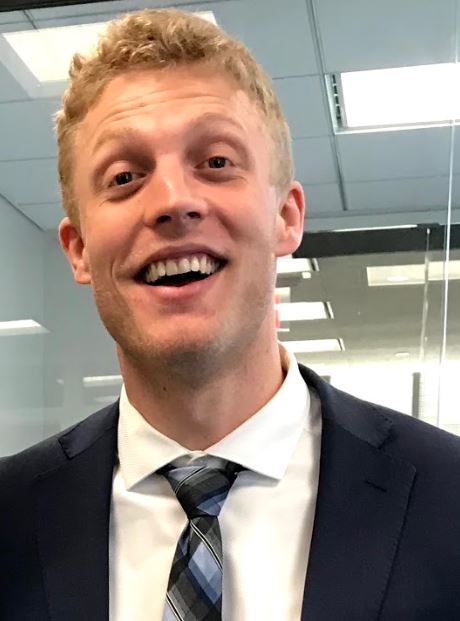Nathan Rockey pays tribute to the patients who are helping him learn how to practise medicine
 During our second year of medical school, my classmates and I have spent many mornings in the hospital learning the art of medicine by taking histories from recently admitted patients, honing our physical exam skills, and practising presenting our findings. On these teaching rounds, I simultaneously relied on, and was constantly surprised by, the enormous generosity shown by the patients we saw. In the midst of scary, tiring, and uncertain hospital stays, someone has knocked on their door and asked if a medical student can take a history and perform a physical exam. Amazingly, overwhelmingly, most people agree.
During our second year of medical school, my classmates and I have spent many mornings in the hospital learning the art of medicine by taking histories from recently admitted patients, honing our physical exam skills, and practising presenting our findings. On these teaching rounds, I simultaneously relied on, and was constantly surprised by, the enormous generosity shown by the patients we saw. In the midst of scary, tiring, and uncertain hospital stays, someone has knocked on their door and asked if a medical student can take a history and perform a physical exam. Amazingly, overwhelmingly, most people agree.
In fact, many people are quite enthusiastic about spending time with students, highlighting an inspiring juxtaposition between illness and selflessness. This endeavour of learning medicine—of doctors passing along their ability to diagnose and treat—would be impossible without these contributions from patients. Such generosity is thus seemingly improbable, while also being essential for the practice of medicine to continue.
With this in mind, I am moved to share some thoughts with the patients who have been a part of my learning. When you are at your most sick, when you are likely scared, and above all when you simply expect to be taken care of, I am asking you to relate your story and to expose your body. In a moment of such vulnerability, how can I expect to take any of your time and energy? And yet, here I am. When you may be at your worst, I am at your bedside, asking if I may bear witness to your experience. When you entered the hospital, did you expect to be asked to contribute to a medical student’s training? What does it feel like to have that part of your body that brought you into the hospital, all of a sudden become one of the building blocks in my medical education?
And, I must confess, this is all incredibly exciting, as my growing medical knowledge begins to acquire tangible meaning. As I place my stethoscope on your chest, just to the right of the sternum, the valve that caused you to feel faint leaves an audible clue, as I actually hear the crescendo-decrescendo murmur of aortic stenosis for the first time. In yet another room, I listen to your back, methodically moving my stethoscope from side to side as I ask you to breathe deeply. Your lung pathology is a source of discomfort for you, but a learning point for me.
Reflecting on such moments, I ask myself, should I feel guilty for this dichotomy? Guilt is rarely useful, and I think this case is not an exception. This is part of the process of training in medicine, and we always strive to treat patients with respect and dignity, as we balance our need to learn. Such respect is not just a courtesy, it is our obligation. It is part of how the Hippocratic Oath manifests itself for students and trainees. Thus, my time with patients this year does not deserve guilt; instead, it demands gratitude.
The patients whom I saw this year allowed their stories to be turned into temporary textbooks, their bodies into arenas for discovery and connection. And, as Osler said, “Every patient you see is a lesson in much more than the malady from which he suffers.” Once patients granted me this glimpse into their lives and their bodies, the physical exam and presentation skills were certainly not the most important lessons.
I learnt how to kneel down, look a patient in the eyes, and listen to their story without worrying about filling a future silence with a textbook question. In fact, it is okay to sit in silence with a patient—empathy and compassion sometimes enter a room only once scripted words have finally left. I learnt that it is okay to tell a joke, and that it is even better to laugh when a patient tells a funnier one. It can be important to cherish humour in times of difficulty. On the other hand, it is also okay to honour a patients’ frustration, and to realise that their past 24 hours likely warrant it.
To the patients that I saw this year: thank you for allowing me to make mistakes and for allowing me to be nervous. You taught me what strength and patience look like. You taught me about being altruistic in the face of pain and uncertainty. Becoming a competent, compassionate physician is a long journey—above all, this year reinforced to me that the people I encounter as patients must always be at the centre of this journey. After all, it is their generosity that enables it to happen in the first place.
Nathan Rockey is a second year medical student at the Mayo Clinic Alix School of Medicine in Rochester, Minnesota. He is interested in internal medicine and infectious diseases. Twitter @rockey_nathan
Competing interests: None declared.
Acknowledgements: Thank you to Dr Magnus Halland for reviewing this work.
